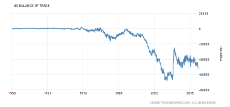What's happening today is another wave of social movements like before. Like labour liberalisation yesterday, female liberalisation conflicts us today. And unlike labour, negotiations on the table are closed. The dominoes starting from the beginning of the Twentieth century were tipped to which we are now in the rubble of. All things have a cataclysm, let me take you to what led us here today.
Very simple to say that the family structure is gone, beaten, usurped. The diagnosis is easy, but what fostered the growth of the disease? There's an economic root that goes unnoticed. Surprising since times of war, women were key in substituting for the males in industrial capacity during times of war; and of course this bolstered a sense of independence. An economic independence that would soon spell death to the nuclear family. As the women became less reliant on the men's wage, so did the social cohesion between the sexes.
Taking a step back to consider culture, the conclusion of women's liberation came in the height of the 1960s. An era of hyper masculinity. Man's last projection of dominance. All the major film and media reflected this; it was confrontational but fearful. Solemn almost. The Civil Rights movement played into this by making a dynamic of two pushing forces. This was the era of when man had laid down. All periods that came after were superficial. Even the 80s. Mere fantasy instead of portrayal of manhood.
And, let me tell you about rock. Ever listened to The Beatles? Well, they got their inspiration from the rocking Negros of the 50s. Now, the Africans are different from Europeans. Their women sleep as with many men as possible to garner the most protection, unlike the European family unit. Despite how blacks may be portrayed, they're very feminine.
My final point here, I ask to pay attention to the graph above. Starting from the point of 1976 (when Mao died, China did economic reform, and ultimately when the Chinese become a cost cutting sink to multi-nationals) is the point of disruption in trade balance. From here, America starts it descent into de-industrialisation and a trade deficit. Soon the economy transforms. Think of this, work becomes less labourious, so it's easy for women to demand jobs and enter the job market. Actually the US has reached a decent income equality for women, but at the cost of its industry. Notice at this time as well that America reduces its tariff policy. Areas of attention are 1974, 1987 (Reagan), & 1993 (NAFTA), and 2000 (China most favoured nation trading status).
https://en.wikipedia.org/wiki/Tariffs_in_United_States_history
"NAFTA and WTO advocates promoted an optimistic vision of the future, with prosperity to be based on intellectuals skills and managerial know-how more than on routine hand labor."
"American industry and labor prospered after World War II, but hard times set in after 1970… Many rust belt industries faded or collapsed…"
There's an economic reason as there is a social reason why America is in the position it is in.
/mlpol/ - My Little Politics
Archived thread
>>119836
Many of these economic issues would be fixed if we abandoned our laissez-faire approach to industry and turned towards a mixed economy model, I'd say. Have the government begin the construction of new factories and the refurbishing/retrofitting of old ones to restart the heart of American heavy industry, while offering incentives like tax breaks and subsidies to private companies who not only keep their factories within American borders, but also work to maintain said factories. Returning to a protectionist trade model would also help. We've got just about everything a nation would need right inside our own borders, and there's little need for us to trade for anything else.
The societal issues, however, are a different beast entirely. Something I'm not entirely sure what would take to fix it.
Many of these economic issues would be fixed if we abandoned our laissez-faire approach to industry and turned towards a mixed economy model, I'd say. Have the government begin the construction of new factories and the refurbishing/retrofitting of old ones to restart the heart of American heavy industry, while offering incentives like tax breaks and subsidies to private companies who not only keep their factories within American borders, but also work to maintain said factories. Returning to a protectionist trade model would also help. We've got just about everything a nation would need right inside our own borders, and there's little need for us to trade for anything else.
The societal issues, however, are a different beast entirely. Something I'm not entirely sure what would take to fix it.
>>119923
>mixed economy model
Fuck that. Government is the height of incompetence, and if given even more economic control would bring the American economy to its knees. Instead the USA should become protectionist which would not only more effective, but more efficient. Raise the tariffs, and punish companies that move their operations overseas by removing tax breaks. The factories would basically reopen themselves if we took that approach.
>mixed economy model
Fuck that. Government is the height of incompetence, and if given even more economic control would bring the American economy to its knees. Instead the USA should become protectionist which would not only more effective, but more efficient. Raise the tariffs, and punish companies that move their operations overseas by removing tax breaks. The factories would basically reopen themselves if we took that approach.
>>119925
And the market hasn't exactly done much to help us out of the hole.
Look, I want a protectionist model, too, and I even said so in my post, but the issue is that even with tax breaks it's simply cheaper in many ways for a company to move its operations to Mexico or China where they can pay their workers pennies while American workers would demand dollars, and where they don't have to keep their factories up to the standards demanded by the Western world. They'll just eat the taxes and tariffs because they'll still make more money doing it that way than if they kept their operations in the US, and they can always just push the increased tariffs and taxes onto the consumer through higher prices for their goods.
And the market hasn't exactly done much to help us out of the hole.
Look, I want a protectionist model, too, and I even said so in my post, but the issue is that even with tax breaks it's simply cheaper in many ways for a company to move its operations to Mexico or China where they can pay their workers pennies while American workers would demand dollars, and where they don't have to keep their factories up to the standards demanded by the Western world. They'll just eat the taxes and tariffs because they'll still make more money doing it that way than if they kept their operations in the US, and they can always just push the increased tariffs and taxes onto the consumer through higher prices for their goods.
>>119926
America is a crony capitalist state. The free market has been stifled, and major corporations pay no income taxes. We should tell them to fuck off, kill their corporate welfare, and jack up the tariffs on China by 9000%. China offers the USA nothings, and steals our advancements. Screw them.
America is a crony capitalist state. The free market has been stifled, and major corporations pay no income taxes. We should tell them to fuck off, kill their corporate welfare, and jack up the tariffs on China by 9000%. China offers the USA nothings, and steals our advancements. Screw them.
>>119937
We unfortunately can't raise tariffs that high while we're in as many trade organizations as we are, something that I would like to see change.
But, if you're in favor of telling major corporations to fuck off, then we need to find some way to replace the lost industry. And you're not in favor of public investment.
We unfortunately can't raise tariffs that high while we're in as many trade organizations as we are, something that I would like to see change.
But, if you're in favor of telling major corporations to fuck off, then we need to find some way to replace the lost industry. And you're not in favor of public investment.
>>119939
America can and should be able to impose sanctions against a currency manipulator. Combine that with the fact that the regime ran people over with tanks and and continues to support NK, there is enough justification for a trade war. The US has no reason to continue good relations with China when they keep stabbing us in the back.
America has more than enough domestic investors with capital to jump start almost anything. All it takes is the right entrepreneur with a half decent plan to get things off the ground.
America can and should be able to impose sanctions against a currency manipulator. Combine that with the fact that the regime ran people over with tanks and and continues to support NK, there is enough justification for a trade war. The US has no reason to continue good relations with China when they keep stabbing us in the back.
America has more than enough domestic investors with capital to jump start almost anything. All it takes is the right entrepreneur with a half decent plan to get things off the ground.
6 replies | 2 files | 1 UUIDs | Archived


 Ex: Type :littlepip: to add Littlepip
Ex: Type :littlepip: to add Littlepip  Ex: Type :eqg-rarity: to add EqG Rarity
Ex: Type :eqg-rarity: to add EqG Rarity 